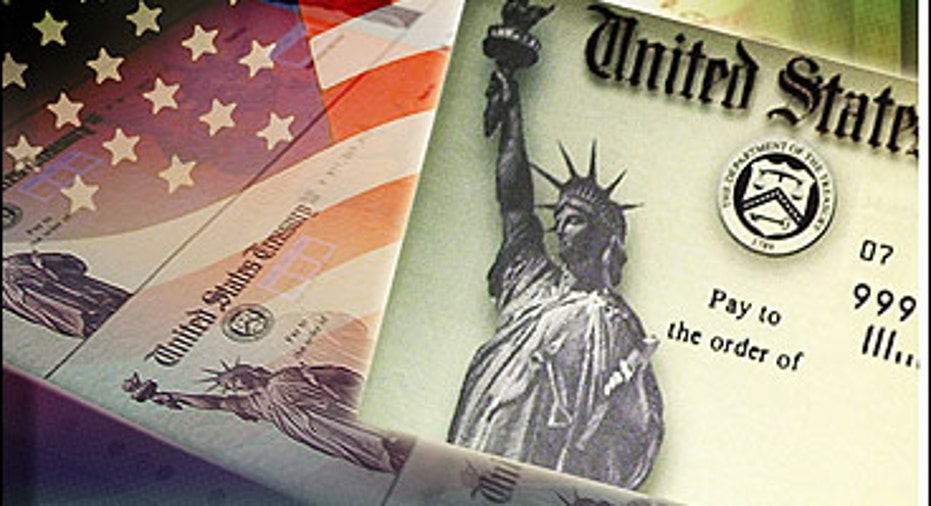Is Your Tax Refund Too Big?

Taxpayers getting back money from the government this year have received an average refund of $2,893 so far, according to March 26 data from the Internal Revenue Service. That’s a nice bump up in cash flow, and a lot of people look forward to it as a chance to splurge, pay down debt or add to their savings.
But those people could have had that money all year, had they withheld less of their paycheck. Getting a big refund means you essentially gave the government an interest-free loan, when you could have put the money in a savings or retirement account to earn interest. You may see that money as a windfall, but you should really see it as the government making good on a year-long IOU.
There’s no right or wrong answer to how much of a refund you should aim to get, because it’s very much a matter of personal preference, and it can also be tricky to estimate. No matter how you choose to deal with your taxes, it’s worthwhile to regularly evaluate your withholdings. Here’s why.
Your Life Changes
About 82% of taxpayers receive refunds, but even if you’ve consistently gotten one, a significant life change may affect how much you receive or if you get one at all. Marriage, divorce, the birth or adoption of a child, or a drastic income change should trigger a review of how much you have withheld from your paycheck.
You Should Look for Patterns
Beyond re-evaluating your tax situation in the wake of a noteworthy life event, your tax-filing history will give you a good idea of when you should consider changing how much is withheld from your paycheck. It can be a difficult thing to estimate, because as much as you want may want to avoid owing the Internal Revenue Service in April, getting too much in return may not be the best for your long-term financial health.
“A good place to be is owing a little bit or getting a little bit back,” said Elliott Freirich, a certified public accountant in Chicago. But where exactly is that “good place”? “There’s no right answer. It’s a gray area, but I would tell people if they could kind of keep (their refund) under $1,000. … It’s not like it would go away and they would never have it if they reduce their withholding.”
Know Your Own Saving/Spending Habits
Some people feel that way — that they wouldn’t be disciplined enough to set aside the money they would otherwise get from a large refund.
“It’s sort of like forced savings,” said Jorie Johnson, a certified financial planner in New Jersey. She said she suggests her clients re-evaluate their withholding if their refund exceeds $5,000. “I encourage them to use half of their refund toward their IRA, if they haven’t already maxed it out, and the other half on themselves, as a reward — that’s assuming they don’t have any debt.”
Consider the big picture: Do you look forward to a large tax refund but struggle to meet your savings goals on a monthly basis? If you’re trying to work your way out of debt or regularly find yourself financing your lifestyle while also getting a large refund check every tax season, that’s a sign you need to revisit your withholding (you might need to re-evaluate your spending habits, too).
Remember that withholding is just an estimate of what you’ll owe, and it may take you a few years of consistent tax outcomes to confidently adjust that estimate to meet your tax needs without owing or receiving a large sum come tax time.
More from Credit.com:
How to Maximize Your Tax RefundDo Taxes Affect Your Credit?How to File Your Taxes for Free
This article originally appeared on Credit.com.
Christine DiGangi covers personal finance for Credit.com. Previously, she managed communications for the Society of Professional Journalists, served as a copy editor of The New York Times News Service and worked as a reporter for the Oregonian and the News & Record. More by Christine DiGangi



















